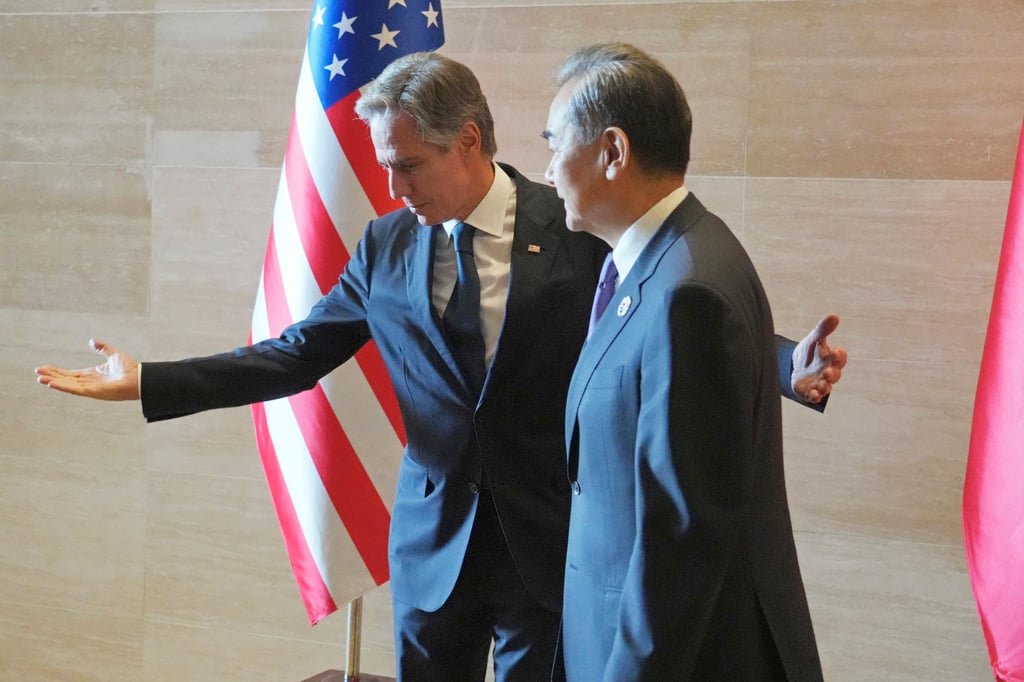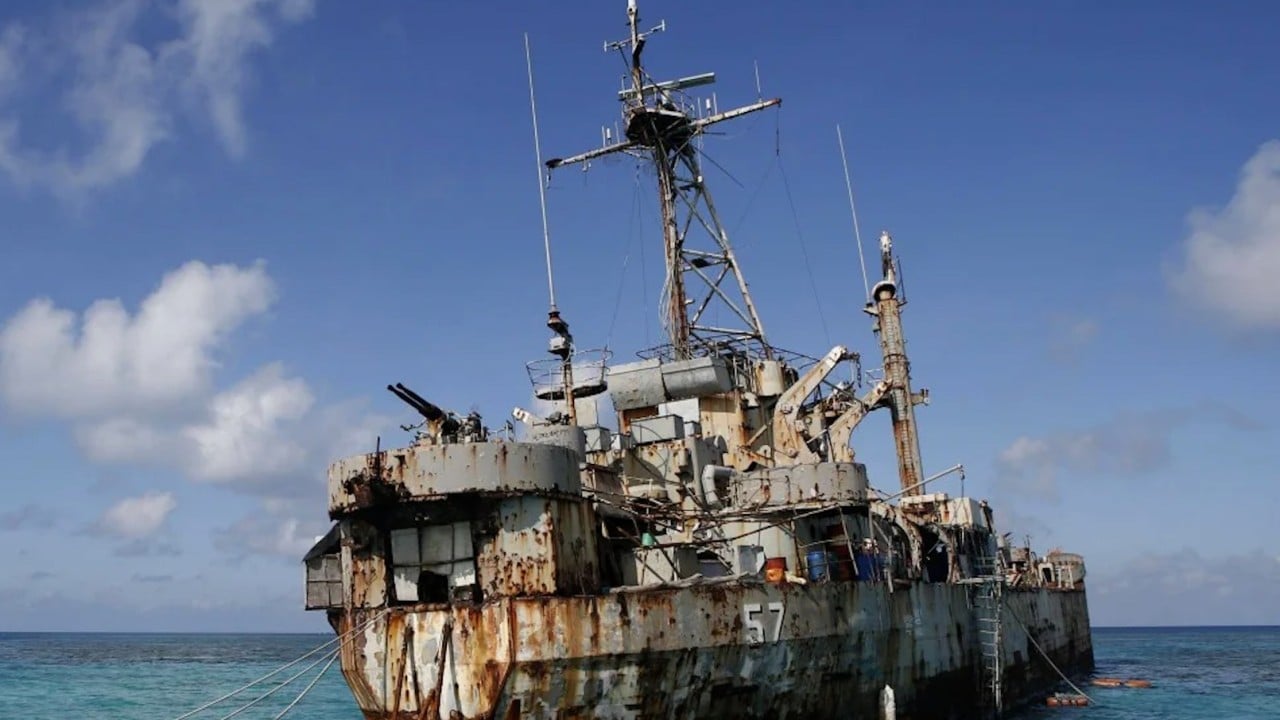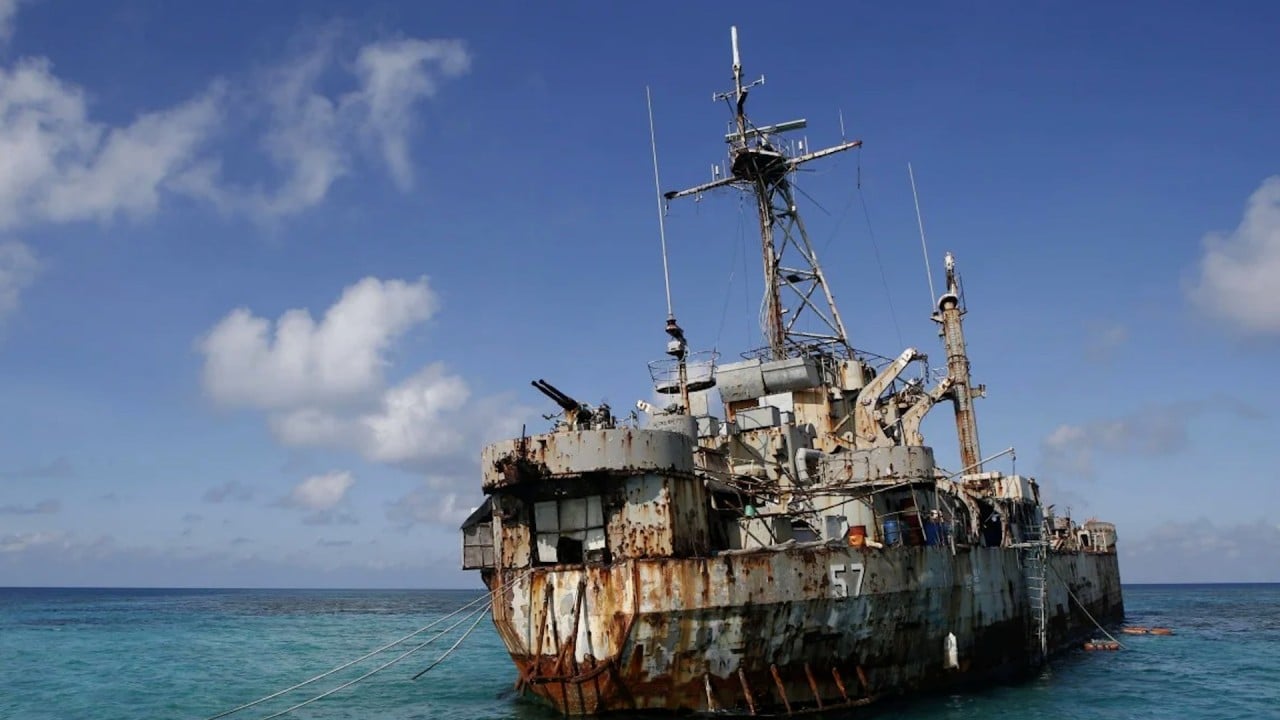Beijing has urged Southeast Asian countries to resist alleged US and Nato-led “external interference” in the South China Sea and other regional hotspots, stepping up pressure on its neighbours amid an escalating war of words with Washington.
Top Chinese diplomat Wang Yi hammered home the message on the sidelines of an Asean foreign ministers’ meeting in Laos last week, saying that the United States had “no right” to intervene in the South China Sea.
Wang’s comments come at a time of heightened maritime tensions between China and the Philippines, a founding member of the Association of Southeast Asian Nations and one of the oldest US treaty allies in Asia.
Caught up in the deepening US-China rivalry for regional dominance, the 10 Asean member states expressed their “concerns” in a joint statement at the end of the three-day gathering on Saturday.
Observers said the statement underlined deep divisions within the grouping.
Maria Thaemar Tana, a non-resident fellow at the Stratbase ADR Institute in Manila, said China’s assertive behaviour has strained relations with Southeast Asian neighbours, which remained deeply divided over how to cope with an increasingly confident Beijing.
“Some countries are cautious about directly opposing China but are also wary of becoming too dependent on it. This situation forces these countries to carefully balance economic ties with China while preventing its dominance,” she said.
Wang on Saturday singled out Washington and the US-led Nato as top threats to peace and stability in the Indo-Pacific, urging the Asean to remain “alert to and oppose [Nato] intervention in the region”, according to a readout from state news agency Xinhua.
“The US-led ‘Indo-Pacific strategy’ exacerbates security dilemmas and runs counter to the vision of long-term peace and prosperity in the region,” Wang told an Asean Regional Forum meeting attended by 27 foreign ministers, including US Secretary of State Antony Blinken.
Nato intervention in the region was bound to “trigger confrontation and escalate tensions,” Wang was quoted as saying.
Blinken in turn hit out at China’s “escalating and unlawful actions” in the South China Sea.
Wang and Blinken also held bilateral talks on Saturday, discussing issues of mutual concern including South China Sea and Taiwan.

Foreign ministers gathered in Laotian capital Vientiane for three days of Asean and related meetings included those from Russia, Japan, India, Australia, South Korea, the European Union and North Korea.
“Asean’s status as a zone of peace, freedom and neutrality should be respected” in a world of “turbulence and chaos”, Wang told the regional forum. “An Asean-centred, open and inclusive regional architecture [should] be supported,” he added.
Beijing insisted on “managing differences [over the South China Sea] properly through dialogue and consultation with parties involved”, he said, while urging regional countries to reject “external interference, confrontation and pressure”.
Wang also denounced Manila’s much-rumoured attempt to file a second international arbitration case against Beijing’s expansive claims to the disputed waters, following its landmark victory in the first such case eight years ago.
China claims almost the whole of the South China Sea under what is calls its historic “nine-dash line”. Neighbours including the Philippines, Vietnam, Malaysia and Brunei contest those claims.
A 2016 international tribunal ruled in favour of the Philippines but Beijing refused to participate in the case and rejected the ruling.
Wang said the 2016 arbitral case “had substantial flaws in law and fact, and was politically motivated”.
“China’s territorial sovereignty and maritime rights and interests in the South China Sea will not be affected by this illegal ruling under any circumstances,” he emphasised.
Wang also lashed out at the deepening US-Philippine security alignment under President Ferdinand Marcos Jnr, including deploying the Typhon US missile system.
“Certain external countries stirred up trouble and created disruptions, and even attempted to deploy an intermediate-range missile system in the region, provoked confrontation, that is the biggest disruptive factor to peace in the South China Sea,” he was quoted as telling the East Asia Summit, also held on Saturday.
During a string of bilateral meetings with his regional counterparts, including South Korean Foreign Minister Cho Tae-yul, Wang also stressed the importance of avoiding interference from external factors, in a thinly-veiled reference to the US.
But Cho shot back, saying that both the rules-based order and freedom of navigation in the South China Sea and peace and stability in the Taiwan Strait were crucial for South Korea’s national security.
Indonesian Foreign Minister Retno Marsudi also warned of “a troubling trend of ‘great powers dominating the smaller ones’, reflecting a hegemonic tendency that should belong to the past”, though she did not name China or the US.
“We are witnessing rising rivalries, increasing distrust, and the potential for dangerous miscalculations,” she told the East Asia summit, according to a readout from her ministry.
Carl Thayer, emeritus professor of politics at the University of New South Wales in Australia, also warned the global order was becoming increasingly polarised into two opposing blocs, with the close Russia-China partnership pitted against the US and its allies.
“In other words, tensions in the South China Sea will be viewed as systemic rather than regional. This will lead to increased cooperation among the United States and its allies Japan, Australia and South Korea and an increase in European naval presence in the South China Sea than heretofore,” he said.
“Asean’s much vaunted centrality in regional affairs will be undermined due to internal divisions.”
The Philippines had tried to include a June 17 collision – the worst clash with China in months near the disputed Second Thomas Shoal – in the joint Asean communique, but this was blocked by Cambodia and Laos, according to the Associated Press.
Singapore’s Foreign Minister Vivian Balakrishnan, who also met Wang, expressed concerns about the rising tensions between Beijing and Manila and the deepening US-China feud, saying “the fundamental problem is a lack of trust between two superpowers”.
He admitted in a group interview on Saturday that Asean’s unity was facing major challenges. Unlike Europe and the Middle East, Southeast Asia should be “an oasis of peace”, without “a line to divide us”, or being “forced to choose sides”, he said.



